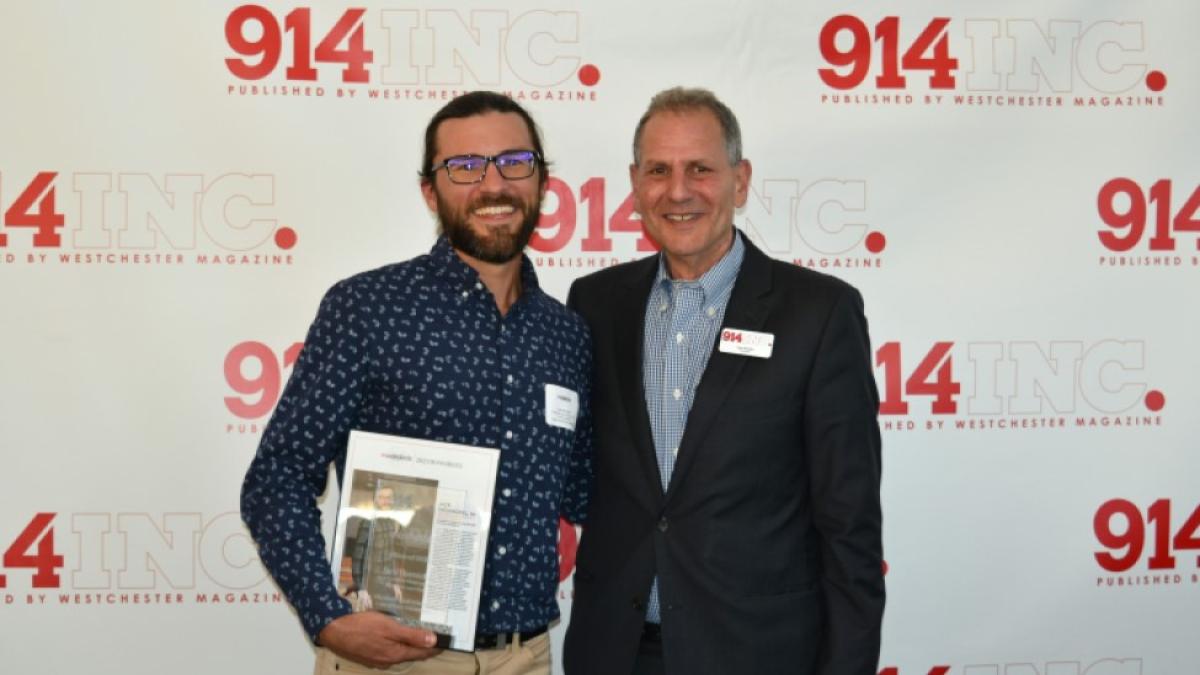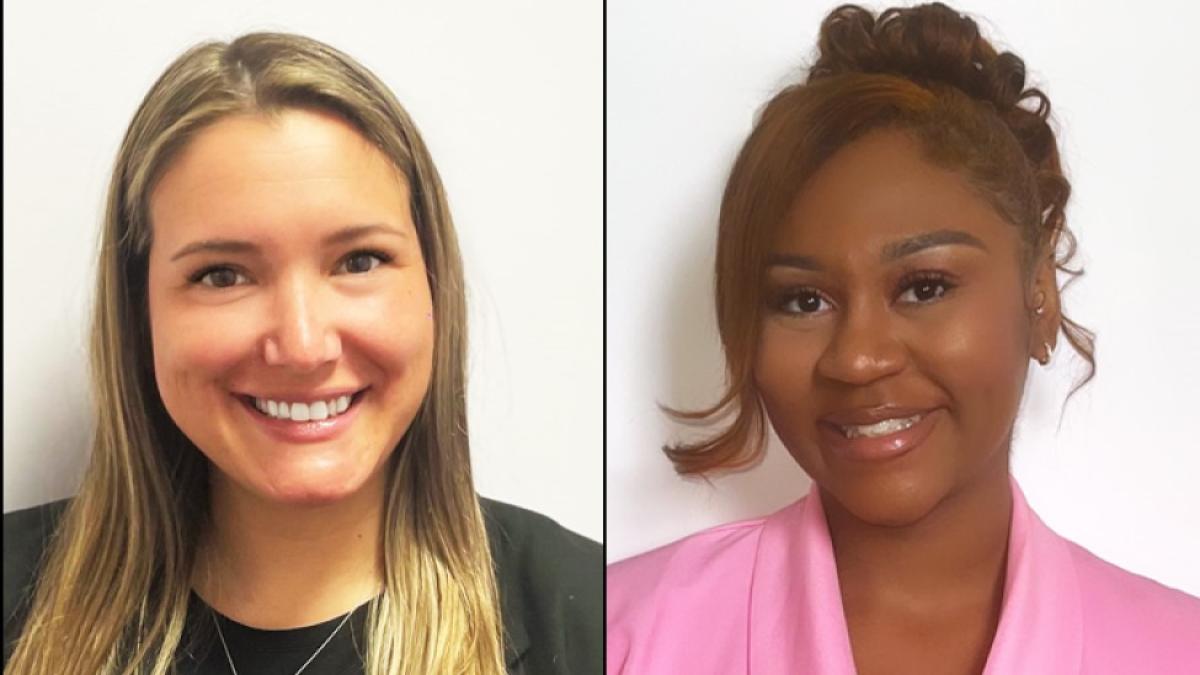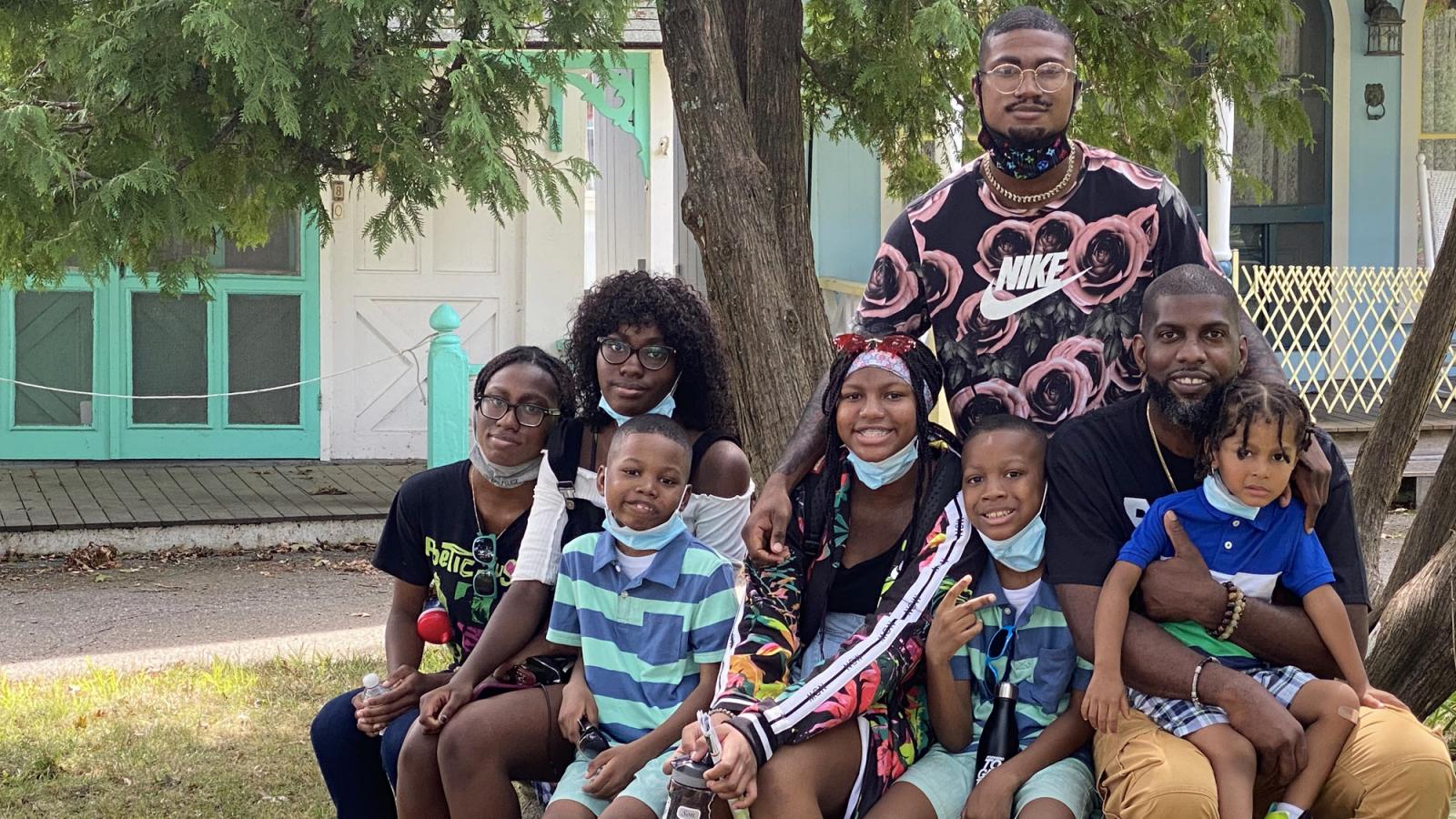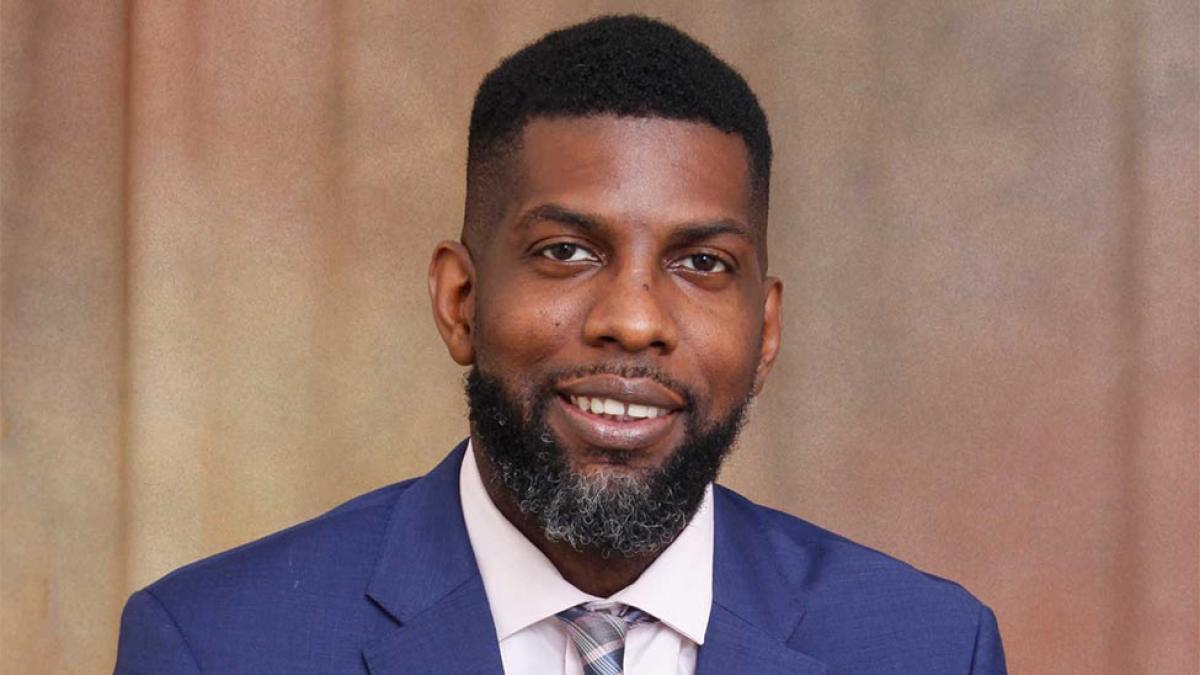The Proposed UN Cybercrime Treaty and a Path Forward
Professor John Bandler pens an op-ed in the New York Law Journal about Russia’s proposed and controversial United Nations Treaty on Cybercrime and a path forward.
As Gen Z Emerges, Law Grads Urged To Do The Unexpected
That was the overarching advice from U.S. Sen. Elizabeth Warren. The Massachusetts Democrat urged graduates at the Elisabeth Haub School of Law at Pace University to avoid what she called the obvious and expected path after commencement: a steady and dependable job at a law firm. "Law firms will pave a road from here to a nice office, in a nice building, in a nice area," she said. "But think about doing something scary."
The Latest On New Restaurants, Food Trends, And Dining Options In The Lower Hudson Valley.
In other film news, Pace University’s documentary film team, PaceDocs, recently premiered "For the Love of Food: Pour l’amour de la Cuisine" which focuses on the slow food movement. The movement began in Europe during the 1980s to preserve the culture of eating locally and combating the popularization of fast food.

Westchester Magazine’s 914INC. Honors Food and Farm Business Law Clinic Staff Attorney, Jack Hornickel
Jack Hornickel, a Staff Attorney with the Elisabeth Haub School of Law at Pace University’s Food and Farm Business Law Clinic, has been recognized with the 2023 Wunderkinds Award by Westchester Magazine’s 914INC.

Jack Hornickel, a Staff Attorney with the Elisabeth Haub School of Law at Pace University’s Food and Farm Business Law Clinic, has been recognized with the 2023 Wunderkinds Award by Westchester Magazine’s 914INC. Hornickel joins an elite list of 24 business professionals under the age of 35 who were selected for generating change across a spectrum of industries in Westchester County, including Haub Law alumna and former staff attorney at the Pace Women’s Justice Center, Alyson Kuritzky ‘14. The award was presented on May 25, 2023, at a reception held at the Mamaroneck Beach & Yacht Club attended by supporters from across the region.
The 2023 Wunderkinds Award recipients were featured in a special issue of 914INC. Magazine in May/June. The article on Hornickel notes that he has provided countless hours of pro bono legal services with the Food and Farm Business Law Clinic, inspired by his deep-seated passion for making the Hudson Valley a better place and his constant commitment to supporting small farmers. “Jack is as innovative, passionate, and dedicated as they come,” says Jonathan Brown, Professor of Law for Designated Project or Service and Director, Food and Farm Business Law Clinic. “Jack joined the Food and Farm Business Law Clinic team in 2021 as our first Staff Attorney and we have thrived with the addition of him to our team. Not only is he an excellent lawyer, but he also has a deep understanding of agricultural issues that makes him a trusted advisor and resource for farmers in our region. Our students and clients are fortunate to work with him.”
At the Food and Farm Business Law Clinic, Jack provides transactional legal services to small farms, food and beverage entrepreneurs, and nonprofit organizations seeking to improve the food system. He focuses his services on intergenerational farm succession, land use, conservation, and land access. Previously Jack represented small farmers and provided business planning services through the GrowNYC Farmer Assistance Program; these services supported farmers selling in the Greenmarket, the largest network of urban farmers markets in the country and a vital food resource for New Yorkers.
“I take great pride in working with regional farmers,” said Hornickel. “These are our most essential environmental stewards, bold entrepreneurs, and pillars of rural community. The more we improve conditions for New York State agriculture, the greater food security and environmental quality we can all enjoy. Working with the Food and Farm Business Law Clinic provides me with a platform to advance this mission while training the next generation of legal minds.”
Two Haub Law Students Selected to Receive Westchester Women’s Bar Association Foundation Scholarships
The Westchester Women's Bar Association Foundation (WWBAF) has awarded scholarships to two students at the Elisabeth Haub School of Law at Pace University.

The Westchester Women's Bar Association Foundation (WWBAF) has awarded scholarships to two students at the Elisabeth Haub School of Law at Pace University.
The Justice Sondra M. Miller Scholarship is a scholarship in honor of WWBA founding member and past President Hon. Sondra M. Miller. The WWBA Foundation evaluates scholarship applicants on a number of criteria: community and/or public service, clinic and internship involvement, life balance, academic record, personal adversity in pursuit of a legal education and intent to make future contributions to Westchester County. This year the WWBAF decided to award two Justice Sondra M. Miller Scholarships, one to each Brittany Miraldi and Shelbire Pierre Paul.
“We receive a large number of high caliber applicants each year,” said Susan Corcoran, President of the WWBAF. “My personal lens that I use in my evaluation of applicants is to try to think about the values of the WWBA and Judge Miller, whose life work is the embodiment of the WWBAF mission. I review how the candidate in so many different ways has excelled to make a difference in the classroom and community at large.”
This year, the WWBAF are awarding two Justice Sondra Miller $5000 scholarship awards given its fundraising and the amazing accomplishments of the winners. “Both Brittany Miraldi and Shelbire Pierre Paul exhibit an extraordinary passion to help our community and have already made a positive impact in the legal field while balancing full-time employment,” said Corcoran. “Shelbire, who graduated this year, is the consummate mentor, leader, and advocate, who has achieved an amazing number of stand-out accomplishments in her law school experience that ‘….promote the fair and equal treatment of all people in society, the workplace, schools and court system.’ Brittany, attending Haub Law as a part-time Flex student, works for Hope’s Door, a non-profit serving victims of domestic violence, and has demonstrated an equally extraordinary track record of using whatever little free time she has to mentor others, assist other non-profits, and excel in the classroom. We could not ask for two more perfect candidates to represent the values and life work of our own WWBAF member Justice Sondra Miller.”
Brittany Miraldi, scholarship recipient, was overwhelmed with gratitude when she was notified she received this prestigious award. “Justice Miller is the epitome of shattering the glass ceiling and her many achievements and contributions to the legal community are inspiring,” said Brittany. “I am humbly aware that my place at the table in the legal community did not always exist, and because of women like Justice Miller, it now does. I am so fortunate to be connected to so many incredible people in this profession through the WWBA, and I believe strongly in the power of mentorship. I look forward to the ability to give back to my community and the next budding generation of lawyers.”
Recent Haub Law graduate and scholarship recipient, Shelbire Pierre Paul was drawn to apply for this scholarship because she admires the work the Foundation and Justice Sondra Miller have done in the community and the constant dedication to supporting women in the legal field. “Justice Sondra Miller has laid the foundation for what it means to be a successful and hardworking woman, which I work hard to embody,” said Shelbire. “I hope to accomplish many great things as Justice Sondra Miller has, and I look forward to furthering my career as an Assistant District Attorney in Westchester County this Fall. I am honored and grateful to be a recipient this year.”
Going for It—No Matter What
Alphur "Slim" Willock ‘19, ‘23 knows that dedication in the face of obstacles is what it takes to get ahead. After the death of his wife, he took on the responsibility of caring for his six children while working full-time. Slim was able to fit not one, but two, online degree programs into his life—a BS in Information Systems and now an MS in Information Technology.


Alphur "Slim" Willock '19, '23 knows that dedication in the face of obstacles is what it takes to get ahead. After the death of his wife, he took on the responsibility of caring for his six children while working full-time. Slim was able to fit not one, but two, online degree programs into his life—a BS in Information Systems and now an MS in Information Technology.
There is no doubt that every parent is a superhero. However, it takes a different kind of super skill to accomplish juggling a full-time job, a large family, and full-time education. Alphur “Slim” Willock ’19, ’23, is clearly up to the challenge.
Slim’s worked at Verizon for nearly thirty years and is a proud father of three sons and three daughters, raising them himself after their mom passed away during childbirth. Both full-time jobs. Many people in his position would be intimidated to invest so much—both time and money—into their education when they already have so much on their plate, but not Slim. Slim was able to make his superhero lifestyle and desire to pursue higher education work for him.
Although his determined attitude would fool you, he admits that being a working parent and a student is anything but easy: “As a father that has kids and is working full-time, Pace’s online degree programs really worked into my schedule.” Slim tried in-classroom learning, but the logistics of making it to a classroom was a real challenge. “I would be leaving from work and driving to Manhattan to look for parking just to make it to my six o’ clock class,” he says. It just wasn’t working as well as it could’ve been. So, he went virtual—completing his BS in Information Systems online through Pace’s Seidenberg School of Computer Science and Information Systems.
After taking the dive into online learning, he realized that online learning is not so very different from going back to school in-person. He was able to make connections with his peers and his professors, and also discovered that online learning made it easier for him to balance his commitments.
“There were a lot of different stressors that were added on to the fact that I’m working full-time, and I still have to go home and cook dinner. Online school helped tremendously for me,” he says. “I could concentrate on my family and at the same time I could still concentrate on my schoolwork.”
One thing that’s important to Slim is to make sure that others understand that an online degree program isn’t any different in terms of value compared to an in-person program. It’s the same curriculum, the same professors, and the same work required to earn the degree. “Online school scared me because I thought it wasn’t the same degree, and you get a certificate that says ‘online,’” he laughs. “But that isn’t true! People hear so many different things about online school and it scares them.”
By the time the COVID-19 pandemic turned the world upside down, Slim was already an old pro at virtual living and learning. So, it made sense for him to return to the virtual classroom to tackle his next big challenge: a master’s degree. And so far, so good. He’s made a lot of great connections in the classroom, is building relationships with faculty, and making friends.
“Some of my classmates are my best friends—I haven’t ‘met’ them yet, but we’re really good friends," he says.
Slim’s persistence and tenacity is not only inspired by his own children, but by the former Verizon chairman and CEO Ivan G. Seidenberg ’81, for whom the Seidenberg School of Computer Science and Information Systems is named. Slim explains that Seidenberg is “an inspiration who set the blueprint for a role model by donating to create a program at the school he graduated from.”
Slim serves as an inspiration to his friends and family (and Oprah, too! Yes, that Oprah), often encouraging others to follow the same path. In talking about his experience, he laughs and says “A lot of people, after I told them I got my degree, would say ‘Slim, if you can do it, with your situation and with kids, I should have no excuses!’”
Chevron Doctrine: Not Dead Yet
“I wouldn’t be surprised if the justices limit Chevron, as opposed to overruling it,” said Katrina Kuh, a law professor at Pace University.
5 Tips For Buying Baby Toys That Support Healthy Development
Brenna Hassinger-Das co-authored an article with tips about picking out a baby toy.
US Expands Its Bilateral Alliances
Dyson Professor Joseph Tse-hei Lee pens an op-ed in Taipei Times about the U.S. expanding its bilateral alliances.
Daniel Penny, Charged With Killing Jordan Neely, Is Gaining Prayers, Millions In Donor Dollars. Big Names Are Helping.
Bennett Gershman, a law professor at Pace University, said it fell on Bragg to put aside public perceptions “distorted by race, stereotypes and conspiratorial rantings.”